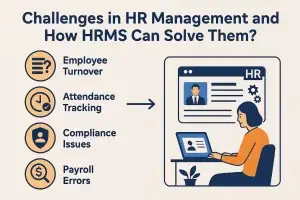UAE businesses, as they grow and develop, will eventually need more sophisticated financial management software. QuickBooks has been a popular choice for small businesses for a long time, providing an affordable and user-friendly solution. QuickBooks is often found to be inadequate by many growing businesses. If your business has begun to outgrow its capacity, it’s time to look for other accounting software that can keep pace with your growth. Following are 10 signs that it’s time to move on from QuickBooks in the UAE.
1 – You Need Industrial-Strength Information Security
In the digital world we have today, information security is the top priority for businesses in the UAE. QuickBooks, though secure, might not offer the kind of security that growing or large businesses require. As you grow, your confidential financial, payroll, and customer data is increasingly exposed to cyber-attacks. Companies in the UAE need to have strong security controls, including end-to-end encryption, backups, and redundancy, built into their accounting system to safeguard their data and comply with local regulatory requirements.
2 – Your Company Needs Complete Integration with Suppliers & Customers
As your company expands, frictionless integration with customers and suppliers is needed to continue running efficiently. QuickBooks may lag in terms of integrating with third-party software, supply chain software, or CRM systems. In the competitive UAE business landscape, businesses need to invest in solutions that have high-end integration capabilities to enable smoother operations and faster alignment with market needs.
3 – Greater Productivity & ROI Are Vital for Your UAE Business
Once your employees surpass 20, the efficiency of your accounting system matters. QuickBooks will be clunky with large groups of employees, slowing them down and lowering ROI. More advanced accounting software will have the ability to automate tasks such as order processing, payroll, and customer relationship management, and streamline your business. UAE businesses can be more productive and yield higher returns with better tools.
4 – Individual Business Requirements Demand Customized Financial Systems
Each company is unique, and your company will require specialized financial management as it expands. QuickBooks may not be able to meet these needs, whether it’s because of custom reporting, industry functionality, or size. UAE companies, especially those in the retailing, manufacturing, and construction industries, need a financial solution with the capacity to conform to their particular processes and workflows, as well as greater customization and flexibility.
5 – Improved Business Planning and Real-Time Reporting
UAE companies need to be capable of making quick, smart decisions in a volatile market. Though QuickBooks provides entry-level reporting capabilities, it might lack the depth and real-time information required for data-informed business planning. Upgrading to a higher-level system can give detailed reporting, budgeting forecasting, and trend analysis and keep you in front of the UAE competitive business landscape.
6 – Processing More Transactions Without Slowing Down
With more clients and increased transactions, QuickBooks might slow down or become prone to performance issues. This will lead to delays and mistakes, which are not good for an expanding business. More robust accounting software that is tailored for large-scale businesses can process high levels of transactions and provide seamless and smooth business flow, supporting your business growth in the UAE market.
7 – Internal Controls to Enhance Profitability
Internal controls are essential to avoid wastage, minimize inefficiencies, and optimize profitability. QuickBooks may not have the sophisticated tools to efficiently handle internal controls. A higher-end accounting system can give closer insight into your finances to identify areas to cut costs and optimize profits. This is particularly important for UAE businesses, where resource optimization and margin management are essential for long-term viability.
8 – Total Financial Responsibility towards UAE’s Regulatory Requirements
In the UAE, companies are required to meet stringent regulatory and compliance requirements, especially related to financial reporting and auditing. QuickBooks is not able to deliver the degree of accountability or audit trails required by these requirements. A more sophisticated financial system can deliver complete compliance, such as double-entry accounting, automatic tax computation, and comprehensive audit reports that are mapped to local norms.
9 – Acquiring a Competitive Advantage through Sophisticated Software
In a competitive market such as the UAE, the right tools can provide your business with a big advantage. QuickBooks is an acceptable tool, but it might lack the features that will enable you to compete in a competitive market. Moving to an integrated financial management system can make your business stand out by delivering superior customer service, completing transactions more quickly, and achieving greater profitability—providing a competitive edge.
10 – Rapid Support and Assistance for Business Continuity
In case of a problem, you require immediate resolution. QuickBooks might provide support but with long waiting periods or fewer options for critical problems. For expanding enterprises in the UAE, immediate technical support is essential to ensure business continuity. By upgrading to an enterprise solution, you can get quicker and more extensive support to keep your financial system operational without interruption.
Conclusion
As your company expands in the UAE, it is essential to reflect on whether QuickBooks continues to serve you well. If you are facing any of the above signs, then it is time to examine more sophisticated financial management systems. An upgrade to a suitable system can provide you with the scalability, security, and support that will enable you to remain competitive and ensure long-term success in the UAE market.



